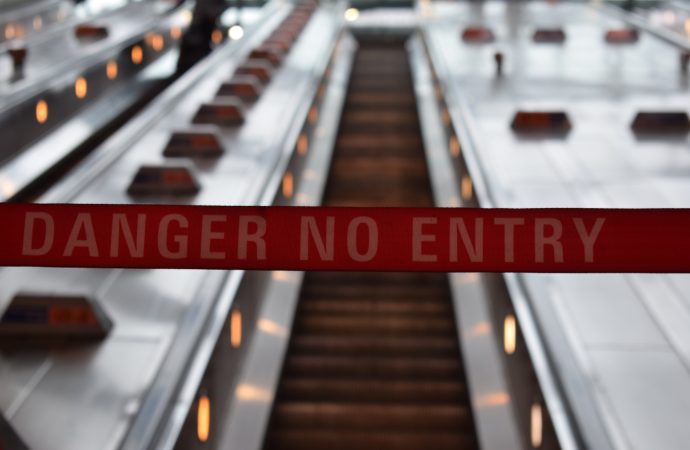As the political landscape continues to shift, so does the fate of Dreamers. These young individuals who were brought to the United States as children and have known no other home now face an uncertain future due to changes in DACA policy and a looming threat of deportation. In this post, we’ll explore what’s next
As the political landscape continues to shift, so does the fate of Dreamers. These young individuals who were brought to the United States as children and have known no other home now face an uncertain future due to changes in DACA policy and a looming threat of deportation. In this post, we’ll explore what’s next for Dreamers and how they are navigating these challenging times with resilience and determination. Join us on this journey towards understanding the complex issues surrounding immigration in America today!
Who are Dreamers?
Dreamers are young, undocumented immigrants who were brought to the United States as children. Many of them have lived in the country for most of their lives and consider themselves American. Dreamers grew up in diverse communities across the country and attended our schools, played in our neighborhoods, and are our friends and neighbors.
Since 2012, nearly 800,000 Dreamers have been able to live and work in the United States without fear of deportation through the Deferred Action for Childhood Arrivals (DACA) program. DACA has allowed Dreamers to come out of the shadows, pursue their dreams, and contribute to our economy and communities.
However, DACA is now under threat. In September 2017, President Trump announced that he was rescinding DACA, putting the future of Dreamers in jeopardy. While there has been a lot of uncertainty since then, Dreamers continue to fight for their place in America – a place they call home.
What is DACA and how did it come about?
DACA is an acronym for Deferred Action for Childhood Arrivals, a program that allows certain young immigrants who came to the U.S. as children to receive a work permit and be protected from deportation. DACA recipients are often referred to as “Dreamers.”
The program was created in 2012 by President Barack Obama through executive action after Congress failed to pass the DREAM (Development, Relief, and Education for Alien Minors) Act, which would have given legal status to undocumented young people who came to the U.S. as children.
To be eligible for DACA, applicants must have arrived in the U.S. before their 16th birthday and must have lived here continuously since June 15, 2007. They must also be currently enrolled in school, have graduated from high school or obtained a GED certificate, or be honorably discharged veterans of the U.S. Armed Forces or Coast Guard. In addition, they cannot have been convicted of a felony, significant misdemeanor or three other misdemeanors, and they must not pose a threat to national security or public safety.
As of September 2017, there were approximately 800,000 DACA recipients in the United States.
The Trump Administration and DACA
The Trump Administration and DACA
The Deferred Action for Childhood Arrivals (DACA) program was created in 2012 under the Obama Administration. The program allows certain undocumented immigrants who came to the United States as children to receive a renewable two-year period of deferred action from deportation and become eligible for a work permit. As of September 2017, nearly 800,000 young people have been approved for DACA.
In June of 2012, then-Secretary of Homeland Security Janet Napolitano announced that the U.S. government would exercise prosecutorial discretion and defer the removal of young people who meet specific criteria, including that they were brought to the United States as children and do not present a risk to national security or public safety. These individuals would also be granted work authorization for a period of two years, subject to renewal. To be eligible for DACA, recipients must have continuously resided in the United States since June 15, 2007, and must have been born after June 15, 1981. They must also have been enrolled in school, have graduated or obtained a GED certificate, or been honorably discharged from the military at the time of their application. In addition, they must not have been convicted of a felony or significant misdemeanor or otherwise pose a threat to national security or public safety.
In September 2017, President Trump announced he would end DACA gradually over six months, giving Congress time to find a legislative solution for Dreamers. However, multiple federal courts have issued rulings blocking the Trump
What’s next for Dreamers under Biden?
The Deferred Action for Childhood Arrivals (DACA) program has been in limbo for the past few years, with its fate hanging in the balance as courts weigh in on the legality of President Trump’s attempts to rescind the program. But now that President Biden has taken office, Dreamers can breathe a sigh of relief—for now.
President Biden has made it clear that he wants to protect Dreamers and has pledged to work towards a pathway to citizenship for them. In his first days in office, he signed an executive order that preserved DACA and put it on firm legal footing. He also sent a bill to Congress that would provide a path to citizenship for Dreamers and other undocumented immigrants.
It’s still too early to say exactly what will happen next for Dreamers under President Biden, but there is definitely reason to be optimistic. Stay tuned for more updates as this story develops.
Conclusion
The future of Dreamers is uncertain due to the ever-shifting political climate. While DACA provided a measure of protection for over 650,000 immigrants, those protections have now been largely rescinded and there is no clear path forward. With the current administration’s hardline stance on immigration, it seems as though Dreamers may be at risk of deportation in the near future. We must continue to advocate for fair immigration reform that respects everyone’s right to remain in their homes regardless of where they were born or raised.





















Leave a Comment
Your email address will not be published. Required fields are marked with *